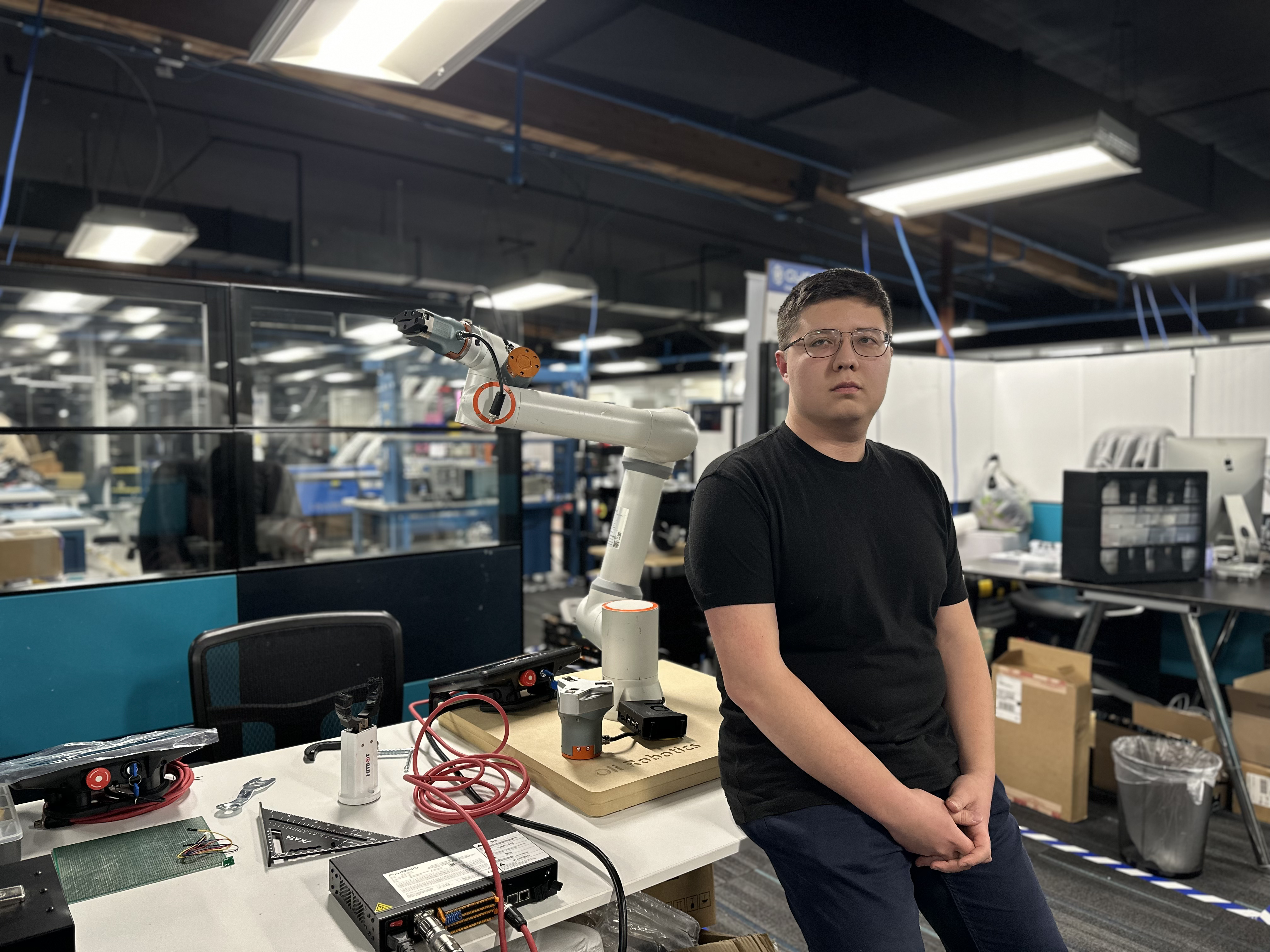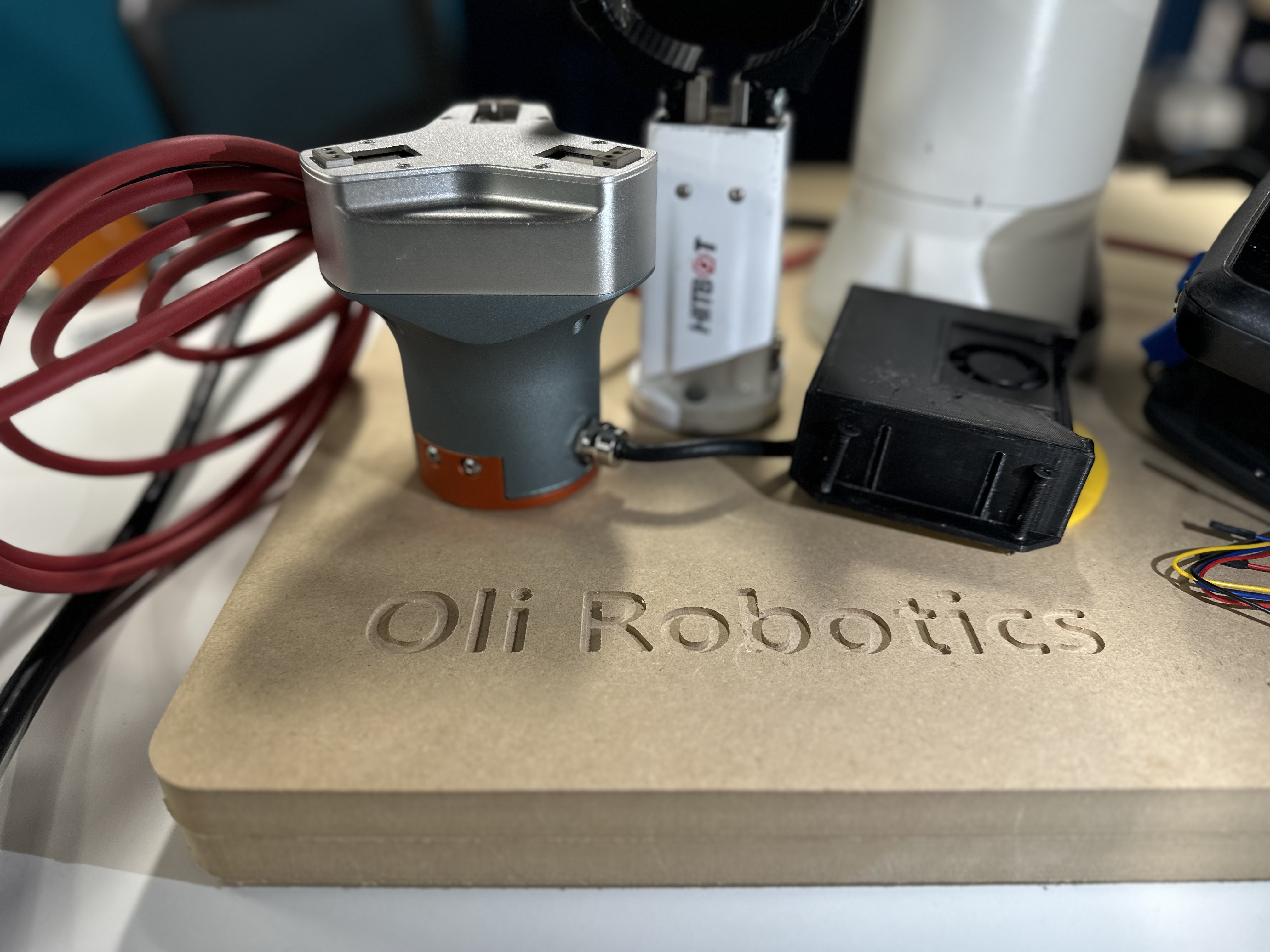ASTANA – Kazakh software engineer and entrepreneur Ismail Karankin has launched Oli Robotics, a startup focused on creating an AI-powered barista robot. The venture has attracted $150,000 in investments and was named one of the top 30 startups from Central Asia for acceleration in the Silicon Valley Residency Program by Silkroad Innovation Hub.

Ismail Karankin. Photo credit: The startup’s press service.
According to the company’s statement, the AI barista, designed for coffee shops, uses artificial intelligence to prepare complex specialty coffee recipes using professional equipment. It can also interact with customers and independently correct errors. Professional baristas train the robot, helping record ideal coffee-making samples to ensure precise execution.
“We record 1,000 task samples to enable the robot to execute them effectively. While industry standards typically require 5,000 to 10,000 samples, our adaptive learning technology reduces this requirement by 5-10 times, speeding up implementation and cutting costs,” said Karankin.
The technology integrates industrial robotic arms, proprietary AI software, and computer vision systems. Stereo cameras, similar to those used in autonomous vehicles, help the robot navigate its environment, ensuring efficiency in dynamic settings.
The robot consumes energy comparable to standard coffee shop equipment, making it a practical business solution.
The AI barista can currently prepare up to 50 cups of coffee per hour, slightly below the 60–120 cups an experienced human barista can make. The next version is expected to match human output, reaching a capacity of 120 cups per hour.
Oli Robotics also offers a mobile app to enhance customer interaction. The app is designed to remember user preferences, suggest favorite drinks, and provide personalized recipes.
Market potential and strategic vision
The AI barista costs US$50,000, which includes maintenance services and consumable supplies such as coffee, syrups, and milk. This pricing model creates a recurring revenue stream for the company.

Photo credit: The startup’s press service.
Karankin emphasized that the robot is intended for locations where hiring baristas is impractical, such as gas stations or small hotels.
“We see them as a complement rather than a replacement for people, providing access to high-quality coffee where it was previously unavailable,” he said.
Karankin came up with the idea for the AI barista during a trip from Almaty to Astana, where he struggled to find quality coffee. Logistics challenges and unattractive working conditions for staff often limit coffee quality in remote areas. Robots, however, can operate anywhere, 24/7, without breaks or vacations.
Potential buyers have already expressed interest in the AI barista, and five letters of intent were received during development.
Oli Robotics plans to launch its product in the United States, where the coffee market is projected to grow from US$28.06 billion in 2024 to US$33.64 billion by 2029, at a compound annual growth rate of 3.69%, according to industry estimates.
